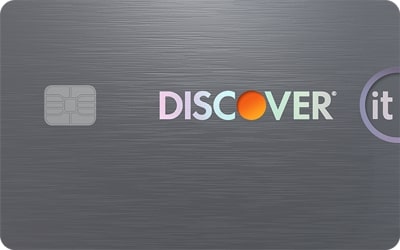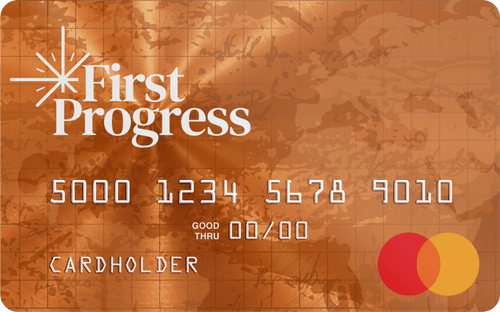Navy Federal nRewards Secured Card Review: No Longer Available
The Bottom Line
5.0
If you don't mind joining the credit union and funding the security deposit, this card can be a smart and effective tool to help build up your credit profile.


Rates, fees and offers
Rates, fees and offers
Annual fee
$0
Rewards rate
1x
Bonus offer
None
Intro APR
N/A
Ongoing APR
APR: 18.00%, Variable APR
Penalty APR: Up to 18.00%, Variable APR
Cash Advance APR: 18.00%, Variable APR
Foreign transaction fee
None
More details from Navy Federal Credit Union
More details from Navy Federal Credit Union
- cashRewards secured credit cards earn unlimited 1% cash back on all purchases
- Helpful tool for credit building
- At 3 months, you could be eligible for an automatic line increase that provides you with additional credit
- At 6 months, we’ll review monthly to see if you’re eligible for an upgrade to an unsecured cashRewards credit card
Pros and Cons
Pros
Qualify with limited/bad credit
No annual fee
Reports to the three major credit bureaus
No balance transfer fee
No foreign transaction fees
Cons
Must be a member/customer
Requires minimum deposit
High APR
Detailed Review
» This review is out of date
The Navy Federal Credit Union® cashRewards® Secured Credit Card stopped accepting applications on April 2, 2025. Existing cardholders will automatically be transitioned to the Navy Federal cashRewards Secured Credit Card which also launched on April 2, 2025. Existing nRewards points, which are worth about a cent each, will convert to cash back.
Below is our review of the Navy Federal Credit Union® cashRewards® Secured Credit Card from when it was available.
• • •
The Navy Federal Credit Union® cashRewards® Secured Credit Card is just about everything a secured card should be. It does require a security deposit, but there's no annual fee, and no unnecessary application or "account management" fees. Starting at six months — with good payment behavior — your account will be considered for conversion to unsecured status.
The Navy Federal Credit Union® cashRewards® Secured Credit Card also comes with some extras not typically seen in secured cards, including rewards.
For someone just beginning to get their financial footing, or anyone recovering from damaged credit, this card can be an excellent first step toward building a strong credit profile.
There's just one catch: You have to be a member of Navy Federal Credit Union to apply for the card. And to join that credit union, you have to meet certain eligibility criteria.
Navy Federal Credit Union® cashRewards® Secured Credit Card: Basics and benefits
Card type: Secured.
Annual fee: $0.
Security deposit: Minimum $200.
Sign-up bonus: None
Rewards: Earn one point per $1 spent. A point is worth about a cent and can be redeemed for cash back, merchandise or gift cards.
APR: The ongoing APR is 18.00%, Variable APR.
Foreign transaction fee: None.
Balance transfer fee: None.
Issuer: When you apply for the Navy Federal Credit Union® cashRewards® Secured Credit Card, you can choose to have Mastercard or Visa as your card's payment network. The perks and benefits differ slightly depending on which you choose.
Other benefits: Rental car insurance.
Compare to Other Cards
Benefits and Perks
Few fees
There are many secured cards on the market, but many tack on additional charges like account opening fees or annual fees. The only thing you'll pay upfront for the Navy Federal Credit Union® cashRewards® Secured Credit Card is a minimum $200 security deposit. The card also charges no foreign transaction fees, making it a good choice for use abroad. And there's no fee for balance transfers.
Reporting to all three credit bureaus
The Navy Federal Credit Union® cashRewards® Secured Credit Card will report your activity to TransUnion, Equifax and Experian, the three major credit bureaus that collect the information used to calculate your credit scores. This means that with responsible payment behavior, you can work toward building good credit — generally, FICO scores of 690 and above — which can qualify you for more favorable rates on things like credit cards, auto loans and mortgages.
Potential to 'graduate' to an unsecured card
Starting at six months, Navy Federal will review your account for good payment behavior. If you qualify, it will return your deposit and convert your account to the unsecured Navy Federal Credit Union® cashRewards Credit Card.
Ability to earn rewards
Cards designed for those with less-than-good credit don't always offer rewards, but the Navy Federal Credit Union® cashRewards® Secured Credit Card does. You'll earn one point for every net purchase you make on the card, and there's no limit on the rewards you can earn. Points are worth about a cent each and can be redeemed for cash back, merchandise or gift cards.
Drawbacks and Considerations
Membership requirement
You can only get this card if you're a member of Navy Federal Credit Union. And in order to be eligible for a membership, you or a family member must be a Department of Defense employee or a current or former member of the military. If you are eligible and not already a member of the credit union, you still have to apply for membership and open a savings account with a minimum $5 deposit. If the extra effort sounds like a headache, the opensky® Secured Visa® Credit Card doesn't require a credit check or any kind of membership. That application ease comes with a price, though: an annual fee of $35.
Security deposit required
Although a $200 security deposit is typical for a secured card, it may still be a barrier for some, especially since the entire sum is required upfront. If a smaller or more flexible opening deposit is more appealing than earning rewards, the Capital One Platinum Secured Credit Card can give you an initial credit line of $200 for a deposit of $49, $99 or $200, for those who qualify. And you can pay the deposit in installments. Terms apply.
If you simply can't afford a security deposit at all, some alternative credit card options could work for you. Or visit NerdWallet's roundup of top credit cards to get to see more options.
How To Decide If It's Right For You
If you're looking for a secured card, and you meet Navy Federal Credit Union's eligibility criteria, the Navy Federal Credit Union® cashRewards® Secured Credit Card is a great choice to get your credit score in shape while earning benefits along the way.
But if joining the credit union is out of reach or unpalatable — or if you're seeking a smaller potential opening deposit or a lower ongoing APR — you might be able to find a card that has a lower barrier to entry.
Looking For Something Else?
Methodology
NerdWallet reviews credit cards with an eye toward both the quantitative and qualitative features of a card. Quantitative features are those that boil down to dollars and cents, such as fees, interest rates, rewards (including earning rates and redemption values) and the cash value of benefits and perks. Qualitative factors are those that affect how easy or difficult it is for a typical cardholder to get good value from the card. They include such things as the ease of application, simplicity of the rewards structure, the likelihood of using certain features, and whether a card is well-suited to everyday use or is best reserved for specific purchases. Our star ratings serve as a general gauge of how each card compares with others in its class, but star ratings are intended to be just one consideration when a consumer is choosing a credit card. Learn how NerdWallet rates credit cards.


